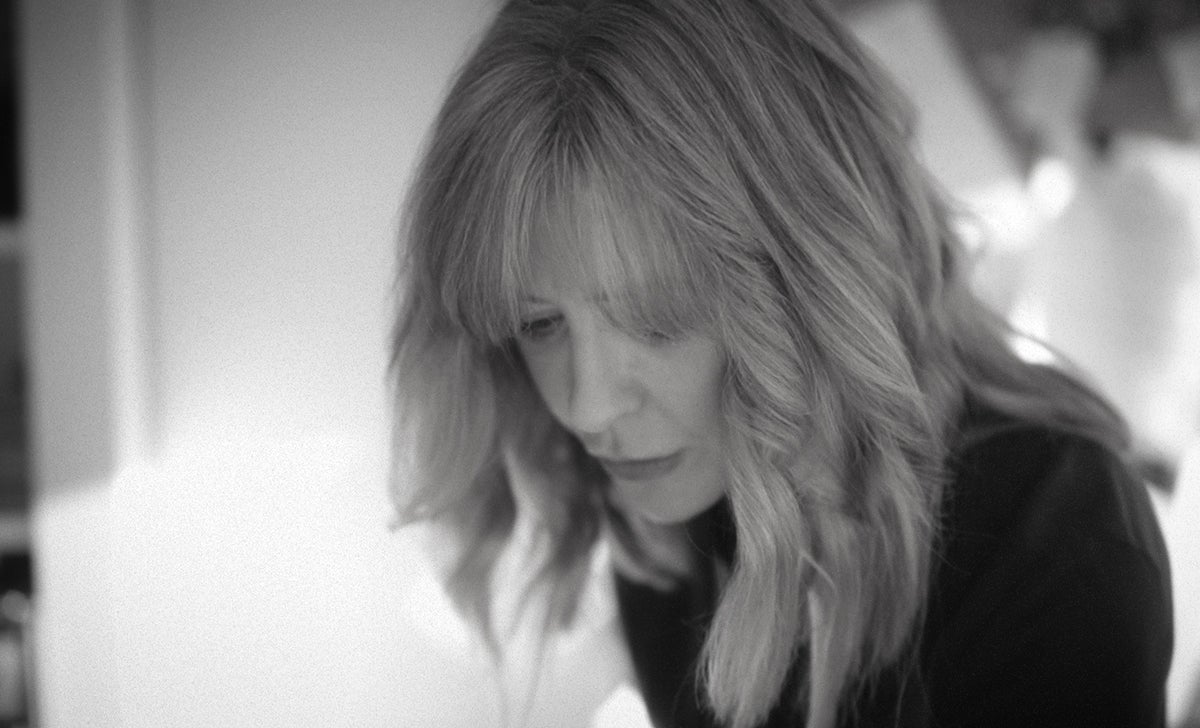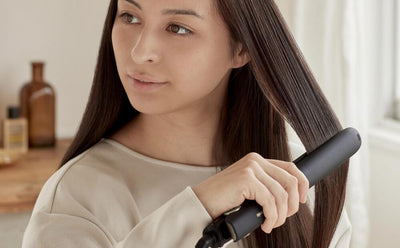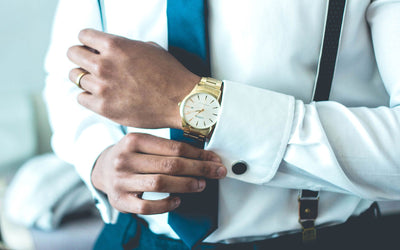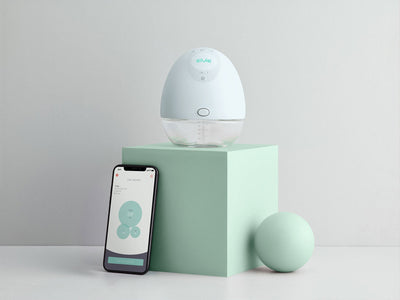Lifestyle
Renowned beauty journalist, ex-Vogue intern and founder of the no-nonsense guide to non-invasive beauty treatments, The Tweakments Guide, it’s safe to say that Alice Hart-Davis knows a thing or two about beauty.

From testing out the lastest (and wackiest) in-salon treatments, to devices you can use at home, Alice has been giving her much acclaimed verdict on the latest beauty innovations for almost 20 years.
We caught up with her at her London home to discuss her Vogue days, her biggest challenges and her top three desert island beauty devices.
You’ve had such a successful career, talk us through how you’ve got to where you are?
I’ve been a journalist ever since I left university.
Then about 20 years ago, I went freelance and I moved in to writing about health. It was all interesting stuff but it all always focused on ‘bad backs’ or ‘ingrown’ toenails, so it was a bit of a heart sink.
I was freelancing at the Evening Standard when I noticed that the girl who sat opposite me got sent all of this beauty stuff. When she left, some of the guys were asking what we were going to do with all of it and I said ‘give it to me, I’ll sort it out.’
After that, I started to look much more seriously in to what the beauty world involved and back then, in the early 2000s, it was all about anti-ageing skincare.
Skincare was something that had been regarded, especially by newspapers, as the ‘fluffy stuff’ but then suddenly there was an influx of products with lots of different clinical studies behind them.
Skincare was something that had been regarded, especially by newspapers, as the ‘fluffy stuff’ but then suddenly there was an influx of products with lots of different clinical studies behind them.
My bosses were very keen to know more about it and were keen for me to go off and speak to doctors and dermatologists about it - that’s where it all started.
Discover more about Alice Hart-Davis >
What was your first job?
My first job was on Vogue magazine, which I was so lucky to get. I’d done an internship there the summer before and they dropped me a line just before my final exams asking if I was free - of course I said yes.
At first I made the tea, I fetched sandwiches, I opened the post but eventually it turned into a proper job.
It was very exciting but also baffling as I didn’t actually understand what was going on with fashion at all. However, I was in the sub-editors department, which involved editing copy, putting commas in the right place etc - which was a great skill to learn.
After that I moved on to The Telegraph, where I ran the shopping pages there. Eventually, I moved on to the daily paper until I was made redundant when I was on maternity leave and I’ve been freelance ever since.
At the time, did you realise how much of a big deal the Vogue internship was?
Sort of. I was a country bumpkin who had gone university but now I look back and I’m like ‘wow’. I don’t think I really realised how amazing it was.
I remember when our editor at the time, Beatrix Miller, announced that a new editor would be starting and around six months later Anna Wintour arrived like an absolute tornado.
I remember when our editor at the time, Beatrix Miller, announced that a new editor would be starting and around six months later Anna Wintour arrived like an absolute tornado.
Anna dragged the magazine kicking and screaming into the modern era.
What does an average day look like for you today?
Honestly, there is no average day. There’s a lot of sitting behind the desk writing and editing videos and then there’s lots of going out talking to doctors, nurses and trying new tweakments.
There’s lots of meeting people at new clinics - I’d say I’d spend most of my time trying to interpret and condense it for people who are interested.
I spend the rest of my time talking back to the industry, from the point of view of what you can call an ‘expert patient’. I’ve got a very interesting position within the middle between the industry and the consumer.
What’s one of the biggest challenges you’ve faced at work?
I’d say taking myself as seriously as I should do. As a journalist working on newspapers, you’re often surrounded by a bunch of witty, cynical, grumpy people who are very keen to detect anybody getting out of line. If you start saying ‘I’m so great, I’ve won these awards’ - you’d get royally mocked for that.
I also think that people think cosmetics and beauty is all ‘fluff’ but really these things are the fundamentals of life and self care, looking after yourself and how you feel about yourself.
There never used to be any options to manage how you age. Historically, you could maybe save up and have a facelift but that was really all there was. Now, there are so many options in between that, from facials to lasers, there’s so much you can do to slow down the ageing process.
There never used to be any options to manage how you age. Historically, you could maybe save up and have a facelift but that was really all there was. Now, there are so many options in between that, from facials to lasers, there’s so much you can do to slow down the ageing process.
Ultimately, you’re never going to stop it. Time will always keep ticking on but you can manage it in a way that never was possible before.
What do you think the secret to success is?
I wish I knew!
Firstly, I’d say don’t be afraid of failure. I’ve tried a new side project every year for the last 20 years, some of them have worked and some of them haven’t but you just never know until you try it.
Also, if you’ve got a great idea for something, have the courage of your convictions. If you bounce your idea around they’ll be lots of people who say ‘oh I don’t think it will work’ but that’s irrelevant - it’s your idea. Especially if it’s something new.
What one piece of advice would you give to your younger self?
Don’t be so scared of everything or don’t be so hesitant, your ideas are valid.
How do you think devices fit in to the beauty industry?
Devices are a fantastic addition because they allow you to bring it all home. You might not live in the middle of London and have access to all of the clinics etc, or you might not even have the time or the budget to go for a session of LED therapy - so these are things you can do at home.
And they do work. I get so many questions about devices, mostly people asking is it really going to make a change and the answer is, yes, but you have to use it consistently.
People always ask, are devices worth it? And the answer is, well, are you going to use it? The device isn’t going to use itself and you need to make that time - and we’re all so busy now that the idea of finding 10 mins a day can seem like a huge stumbling block. Yet we all seem to find time for social media, TV.
Devices are a fantastic addition to the modern beauty market, as they fill in that gap between skincare and procedures and they’re something you can control and do at home.
Devices are a fantastic addition to the modern beauty market, as they fill in that gap between skincare and procedures and they’re something you can control and do at home.
What are your top 3 desert island devices?
I would go for the CurrentBody Skin LED Mask - you’ll probably see me wear it all the time on social media. I literally roll out of bed in the morning, get on to my meditation cushion, pop it on and meditate. I can honestly say it does work - but you have to use it enough.
I can honestly say it does work - but you have to use it enough.
Then, it would have to be the NuFACE Trinity. I love it for toning - it helps me contour if I’m really saggy or puffy.
I’m also a fan of the Dermaflash, which is dermaplaning - it gets rid of all your peach fuzz. It takes a bit of excessive leaning in with a magnifying mirror to get rid of all the hairs but I love it.
You’re really passionate about the legislation on more invasive procedures such as injectables etc, what are your thoughts on fake devices?
The fake device industry is huge. It’s a real problem because often fake ones are branded and marketed with the literature that comes with all the real ones - all the big players in the industry spend a lot of time tracking down fake versions.
And it’s something that consumers aren’t even aware of. Often these things don’t have the same safety profile and it probably won’t work half as well, so firstly they can be dangerous and secondly they’re not as effective.
People need to be educated on what the genuine brands are and to be aware of it.





